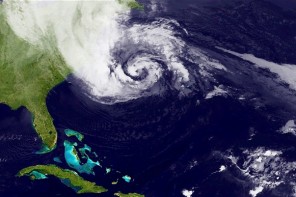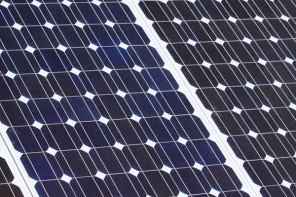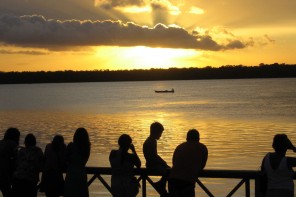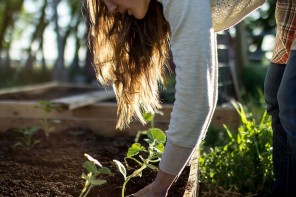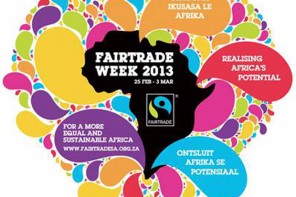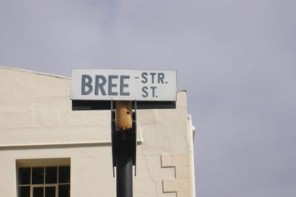Not only does living off the grid make you more independent and reduce the size of your carbon footprint, but it can also be much cheaper for you in the long run!
If you think about it, we are dependent on public services in so many ways: everything from the removal of our waste – toilet and kitchen – to delivering us the water in our tap and the electric for our lights. This centralised model makes us completely reliant on a system out of our personal control, which is especially annoying during black-outs, water maintenance or when we are not in agreement with the ways that electricity is produced by our governments.
‘Off the grid’ is about being self-reliant and living in a home that operates independently of all public utility services. ‘The grid’ refers to the main electricity network all conventional homes are linked up to. Benefits of this include decreased size of carbon footprint, reduced costs and less reliance on dwindling fossil fuels. It can also be fun and expand your understanding of how things work.
Getting off the grid can be as simple as lighting a candle or washing from buckets of hand collected water, but what of those of us with modern needs who do not want to drastically change our lifestyles? There are many ways that you can become off the grid while still enjoying an abundant supply of water for drinking and washing, electricity for heating water and supplying energy for lights, stove and technical appliances, as well as proper management of our house water waste – be it ‘grey’ (kitchen and bathroom sinks) or ‘black’ (sewerage).
Alternative technologies can be installed in the home to make you more self-sufficient which, although costly at first, will be sure to pay off over time. Becoming completely off-gird can be difficult, but small efforts make a big difference to your environmental impact.
Water
Believe it or not, there are ways of collecting the water run-off from your roof and storing it for later use. It is important that your roof is not made from toxic materials as this will contaminate the water. You can get it lab tested for peace of mind and even filter it before drinking.
Get your property checked for underground fresh water as a borehole can be dug. There are various spring water collection points around Cape Town, including Newlands and St James.
It is important to be conscientious of how you use your water. Setting up your grey water system so that the run-off from your home goes onto the garden can be a great way of ‘closing the loop’- but be sure to switch to eco-friendly body and housecleaning products, as chemicals can be very bad for plants and soil!
Electricity
There are various different kinds of renewable energy technologies that make use of our country’s natural resources, namely the wind and the sun. While there are other exciting technologies in the works like peda l- and water-power, these have not yet reached the commercial market. But professionals are improving renewable designs every day, adapting them for easy domestic use.
Solar
It has been said that solar is the most ideal renewable technology option for suburban home use. There are two main types of solar panels; solar electric panels and solar water-heating panels. Converting sunlight into energy via a photovoltaic system that uses crystalline silicone, solar panels generate about 70 milliwatts per square inch – which means if you wanted to become completely off-grid you would need quite a large number of these.
But by simply installing a solar heating you can drastically reduce your electricity bill. Remember that just by doing what you can afford you can make a difference, although it is important to be sure you are getting a good quality panel that will generate sufficient energy and last you a long time.
Wind
Wind turbines make use of another natural element. By turning the blades of the turbine, which spin a shaft and connect to a generator, wind can be transformed into electricity. Horizontal axis turbines are recommended for residential homes. The larger the turbine the more energy can be generated, although certain professionals have been working to create more domestic-friendly and efficient designs that make use of the area of the blades.
Awareness of how much energy is used in the home is important and by switching to energy-saving light bulbs or LED’s you are also decreasing the size of your carbon footprint. If you want to use solely renewable energy in your home you will need to consider storage of electricity for rainy days; usually inverters and batteries are used.
Other ways
Off-grid is a lifestyle thing; if you want to be self-sustainable there are many small things that can be done. While alternative toilet systems remain a controversy, something as simple as recycling and composting your kitchen waste can make a difference to how dependent you are on the waste removal trucks, for example.
- By growing your own vegetables or buying from local farms you are ensuring that less products in your home have been imported or transported large distances.
- Bio-diesel can be used safely in certain cars and bicycles are good for short distances.
- By insulating your home correctly, less electric heating or cooling is required
- DIY in the home can be fun and cost-effective!
Attend an off-the-grid course in Cape Town – See here for more details: http://getoffdagrid.withtank.com/courses/
Local companies who specialise in renewable and alternative technologies:
MLT Drives – Specialises in solar power systems
http://www.mltdrives.com/
Earth Power – Specialises in wind turbines, solar panels, hydro technology and LED lights
http://www.earthpower.co.za/
Windwatts – Specialises in wind turbines and solar panels
http://www.windwattsturbines.com/home.aspx
Global warming Solutions – Specialises in wind turbines, solar panels, LED lights, batteries, inverters, pumps and regulators
http://gwstorecapetown.co.za/
Water Rhapsody – Specialises in rainwater harvesting, grey water irrigation systems, pool technology and multi-flush toilet systems
http://www.savingwater.co.za/



